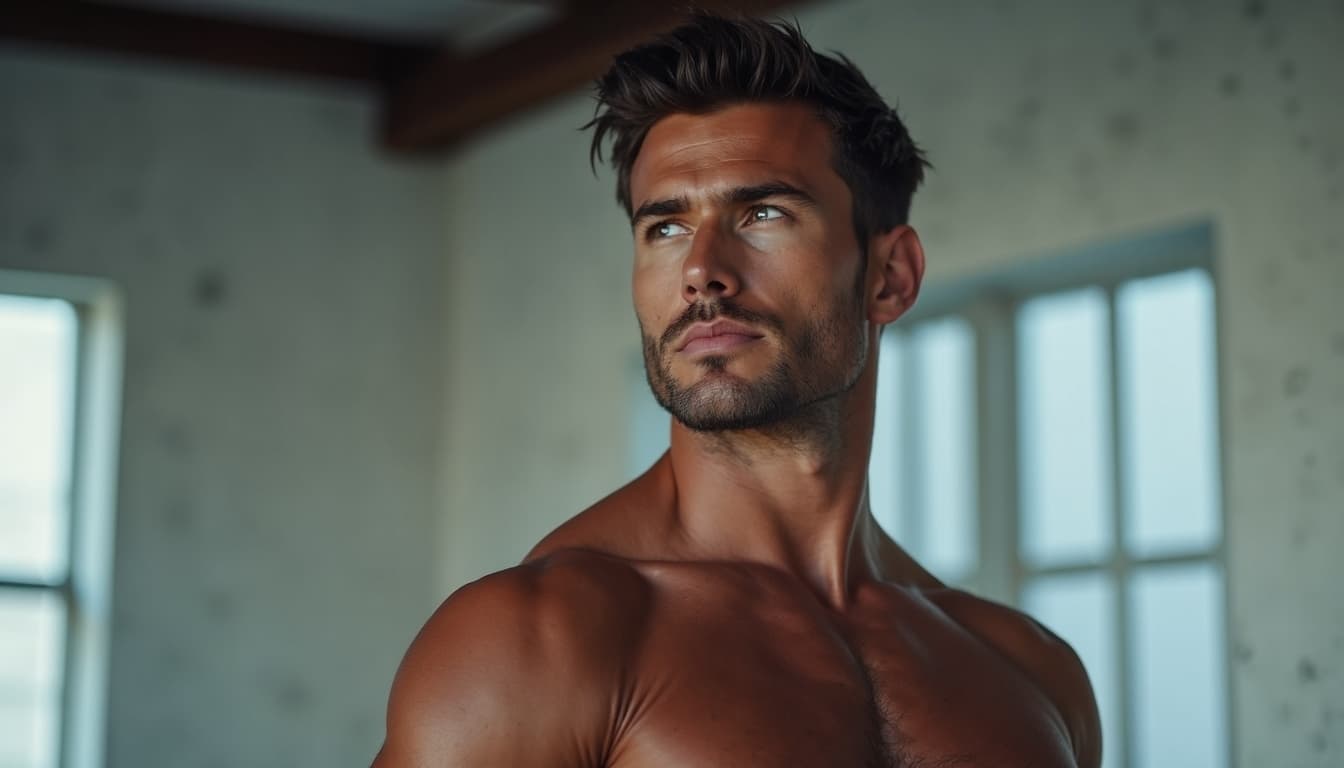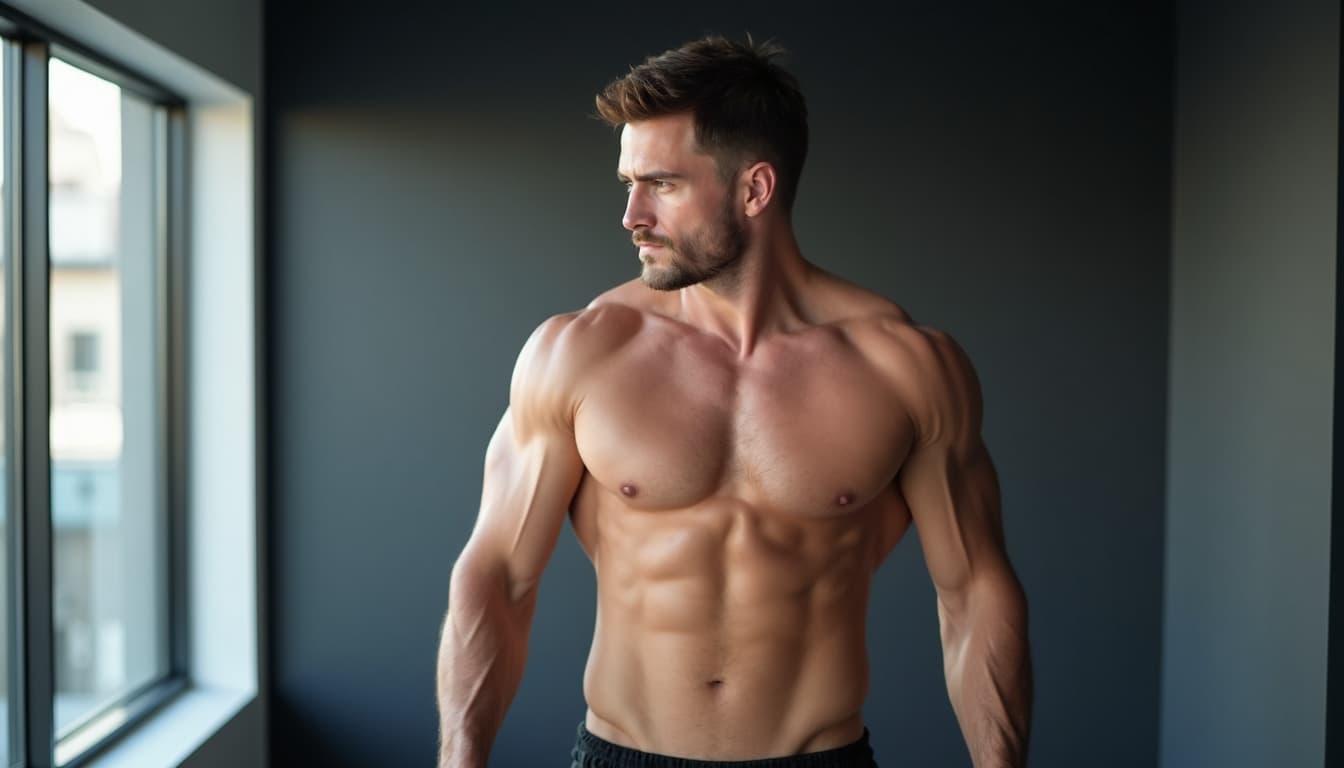Understanding and Managing Erectile Dysfunction: A Guide for LGBTQ+ Men

Erectile dysfunction (ED) may be one of the most whispered about topics in men’s health, especially among LGBTQ+ men, but let’s get something straight right off the bat: there’s no need for shame here. ED is simply the inability to achieve or maintain an erection strong enough for satisfying sexual activity. It’s a common experience that many men will face at some stage in life. And guess what? It doesn’t make you inadequate, weak, or any less of the dynamic human being you are.
What it does make you, however, is someone with a body and mind that are interconnected in the most intricate ways. Whether you’re navigating casual flirts on a Friday night or diving deep into love and connection with a long-term partner, ED can come into play—but there’s no rulebook saying it has to define your story. Together, let’s dismantle the stigma surrounding ED, embrace the realities of sexual health, and forge a path toward solutions that are empowering and affirming.
Why the Conversation Matters

Sexual health conversations can be daunting—yes, even for the most confident among us. For those of us in the LGBTQ+ community, there’s an additional layer of societal stigma, cultural barriers, and even anxiety about how masculinity or relationships are perceived within our circles. As gay, bisexual, queer, and other men who have sex with men, we’re no strangers to navigating complexities, but tackling ED still requires breaking down some walls.
It helps to first shake off some common myths. ED isn’t just for men over 60. It isn’t an unavoidable part of aging. And it most certainly isn’t a sign that you’re any less capable in bed. Factors like physical conditions, mental health, and lifestyle choices can all play a role. For LGBTQ+ men, the topic of ED also intersects with potentially higher rates of anxiety, depression, and the pressure of societal expectations. But here’s the truth: sexual health is for all of us. And tackling ED is about improving life—not finding fault.
The Mechanics of Desire
Before diving into solutions, let’s break down what’s happening when the “system” isn’t functioning the way you’d like. Erections aren’t just about what happens below the belt; they’re the beautiful result of a complex partnership between your brain, blood flow, nerves, and emotional health.
When you're turned on, your brain sends signals to increase blood flow to the penis, essentially turning your body into a symphony of responses. But just like how a guitar might sound off-key when one string is too loose or another too tight, factors like stress, self-esteem, or even physical health issues can disrupt this harmony. For LGBTQ+ men, additional elements like societal pressures, fear of rejection, or even past relationship traumas can quietly add tension to this mix.
What’s important is to see ED not as a "failure" but as your body communicating that it needs something different. Sometimes it’s rest, sometimes it’s treatment, and sometimes it’s acknowledging an emotional block. Whatever it is, understanding the root is part of the journey toward reclaiming pleasure.
Why It Happens: The Big Picture
If you've ever been unsure of why you're experiencing ED, you're not alone. It happens for different reasons, and more often than not, it's a combination of factors.
Physical Health Matters
- Conditions like diabetes, cardiovascular disease, or hypertension are some of the biggest physical culprits. They restrict blood flow, and when blood and oxygen can’t reach your pelvic area adequately, things might not function as you'd hope.
- Furthermore, medications for depression or high blood pressure (among others) can carry side effects that impact your libido or your ability to sustain an erection.
Mental Health and Emotional Well-Being
- Mental health is often a huge puzzle piece in the ED equation, particularly in LGBTQ+ spaces where barriers like internalized stigma or societal expectations can weigh heavily.
- Anxiety, whether it's about pleasing someone in bed or about unrelated life stress, is a common issue.
- Depression can decrease libido altogether. Think of it this way: your brain is one of the biggest organs involved in pleasure, and when the mind feels overburdened, it’s tough for your body to do its thing.
Lifestyle Choices
- Sure, we all love the occasional indulgence, but habits like smoking, heavy alcohol use, or ignoring exercise can weaken your body’s ability to perform when it matters most.
- Nutrition, sleep, and regular physical activity fuel your body’s sexual response like sunshine fuels a plant. Taking small (and I mean small) steps toward better health can make a major difference.
Enjoying this content? Support our work by taking a moment to visit the sponsor of this article
Visit SponsorAging
- While ED becomes more common with age due to declines in testosterone or natural changes in blood flow, it’s not inevitable, and it doesn’t mean desire or intimacy have to fade.
- Growing older is about evolving, not giving up. And yes—there are solutions for keeping the fire alive!
Rebuilding Confidence and Connection
Here’s the good news: ED doesn’t have to be a full stop to your pleasure or intimacy. It’s more like a comma—a chance to pause, explore, and rediscover what works for you and, if you have one, your partner.

Lifestyle Tweaks
- Fuel Your Body: A diet rich in fruits, vegetables, and lean proteins helps your arteries flow smoothly—literally and figuratively.
- Get Moving: Cardio-based exercises like walking, running, or swimming can drastically improve circulation. Plus, exercise ups your endorphin levels, which can reduce stress and pump up confidence.
- Stress Less: Learn mindfulness techniques, pick up yoga, or simply make “me time” a priority. Reducing stress is just as important as physical exercise when it comes to sexual health.
Open Communication
- Talking with your partner about ED isn’t always easy, but trust me—honesty can bring you closer.
- Rather than seeing ED as “your” problem, think about it as a shared opportunity to create new pathways to intimacy.
- Focus on mutual pleasure, explore connection through touch, and don’t underestimate the power of laughter during vulnerable moments.
Professional Help
- ED isn’t something you need to solve alone. Did you know that medications like Viagra or Cialis work wonders for many, but might not even be necessary for others?
- Working with a healthcare provider can help pinpoint whether medical treatments, therapy, or alternative options like acupuncture or shockwave therapy could work for you.
- And if the root cause feels psychological, counseling or sex therapy can provide a safe space to navigate performance concerns or low self-esteem.
Redefining Pleasure
A fulfilling intimate life doesn’t have to revolve entirely around erections. Rediscovering pleasure might include exploring toys, introducing massages into your routine, or even shifting your focus toward bonding moments that don’t center on penetration.
If you’re worried that ED will be the end of your confidence, think again. Many LGBTQ+ men find that facing this challenge helps them to examine new ways of experiencing joy, connection, and even personal growth. Sometimes, it's about embracing the moment and being kind to yourself during the difficult times.
Pathways Forward
Normalizing ED and sexual health conversations, both within the LGBTQ+ community and beyond, makes a world of difference. By opening up instead of shutting down, we start to create spaces where people feel seen and supported. The more we talk about this—and not just in hushed tones—the more we collectively become a catalyst for change.
And here’s the thing: this journey is uniquely yours. Lean into it with curiosity, gentleness, and excitement for what’s ahead. You’re not alone, and your ability to feel pleasure and connection doesn’t disappear because of ED. It evolves with you. Celebrate that.
So, let’s start something powerful: the conversation. Whether it’s at your local clinic, over wine with close friends, or during an afternoon scroll through your favorite forum, let’s keep talking about sexual health. Start small, but start. You’ve got this.



